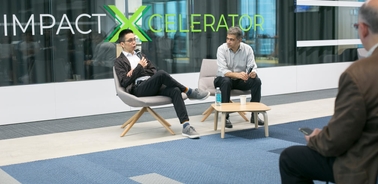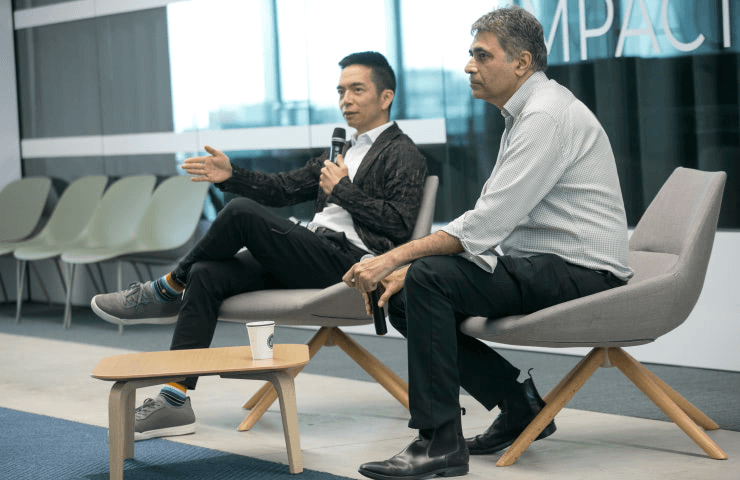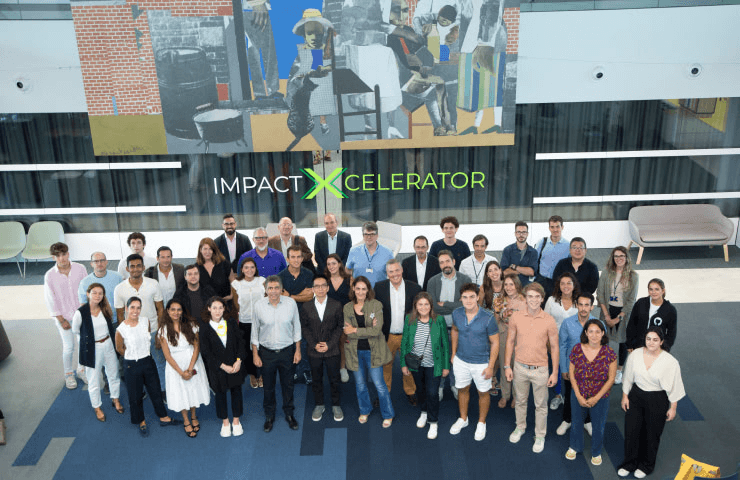John Maeda Talks AI, Customer Experience and Design at IE University

Renowned author and speaker hosted by IE School of Science and Technology.
IE School of Science and Technology hosted bestselling author and VP of AI and Design at Microsoft John Maeda in an event that addressed the future AI, customer experience and design, among other hot topics.
Ikhlaq Sidhu, Dean of IE School of Science and Technology, moderated the broad-ranging talk with faculty and students across IE University’s five schools with the popular Ted Talks speaker in Madrid, ahead of Maeda’s participation in the Hay Festival Segovia this weekend.
A Top Voice on LinkedIn, Maeda held forth on a range of topics including problems of LLM code, setting expectations for AI experiences, combatting bias in code and the human factor in society.

“We humans love to humanize things,” he said, referring to pet names for cars or favorite household items. “Don’t humanize AI. I don’t chat with it. It’s a search engine for me.��”
The author of How To Speak Machine: Gentle Intro to AI+ML said he left his highly respected position as a tenured professor at MIT Media Lab to move into industry as part of his eagerness to experience his “insecurities” and stay focused on learning.
When asked how to best learn AI, Maeda said to just use it.
“It’s getting easier to try to make things with AI,” he said. “And the more you make with it, the more you are not subject to the hype. The hype is telling you what someone else told them. But, when you build it yourself, you see what it’s really doing.”
Sci-Tech Students Paul Ruiz and Ricardo Mendez applauded Maeda’s original perspective.
“My favorite part was when John talked about the collision of art, design and computers and how they conflict with each other and how he’s constantly in conflict if he loves machines or if he loves art,” said Mendez, an undergraduate student in Computer Science and Artificial Intelligence.
Ruiz said the highlight for him was hearing about the future of LLMs.
“The most interesting thing we learned was about the LLM process and how in fact it’s dependent on the incoming technologies. I never thought about it this way. And it was great to hear it,” said Ruiz, a student in the bachelor degree for Computer Science and Artificial Intelligence.
When asked about what the world will look like in 50 years, Maeda appealed to the constants of human nature and timelessness of emotional responses.
“It won’t change as much as we think.”
